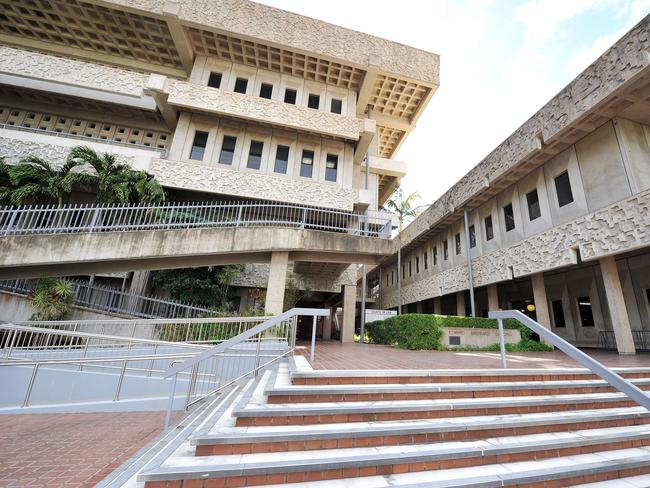Bowen sex assault convictions set aside on appeal, new trial ordered
A retrial has been granted in a sexual assault case involving a young boy after an appeal in Queensland’s highest court. Read why the guilty verdicts were abandoned.
Police & Courts
Don't miss out on the headlines from Police & Courts. Followed categories will be added to My News.
A retrial has been granted in a Bowen rape case after Queensland’s highest court found there had been a miscarriage of justice.
The case involved 13 allegations of sexual assault against a boy who was aged 10 to 17. He says his alleged perpetrator “used to be a best mate and an uncle”.
He told a jury in a Townsville District Court jury the alleged offences happened on seven or eight separate meet-ups.

He recalled he was allegedly molested while at a family fun event when they would ‘run amok’ at the Don River at Bowen, while setting up tents and tables for a protest about the trains at Abbot Point and at the Alva Hotel in Mackay.
A jury convicted the accused man of 10 out of the 13 offences before them.
The accused man challenged the convictions in the Queensland Court of Appeal, arguing there were cumulative errors that produced an unfair trial including improper amendments mid trial and not directing the jury correctly.
He argued the verdicts against him were unreasonable and inconsistent.
In a lengthy appeal court judgment, Justice Philip Morrison detailed a number of actions led to the court ordering a retrial.
“In my view, the circumstances surrounding the extraction of the admission and the failure to direct the jury as to the use they could make of it caused the trial to miscarry,” he said.
Justice Morrison detailed debate about inconsistent and unchallenged evidence from the alleged victim as well as implausible allegations of indecent touching while driving at 40km/h through gullies on a dirt track on a quad bike and at a work site.

Mr Morrison also detailed “fundamentally inconsistent” evidence relating to a rape allegation, which differed in the witness box from an original statement.
He said there was also “unreliable and materially inconsistent evidence” regarding dates and, the quality of the alleged victim’s “reliability and memory was consistently poor, especially when challenged”.
“Far from remembering the key points, his account was ‘hazy’, he mistook key dates,” the judgment reads.
But when it came to unreasonable verdicts as a ground for appeal, Justice Morrison rejected the notion the jury could not have accepted the alleged victim’s evidence as not meeting the requisite standard.
“Such inconsistencies are to be expected when a witness is recalling events from as long ago as 11 years and doing so from a memory that has been impacted by those very events,” he said.
“The complainant was upfront in confessing the imperfect quality of his recall, yet was able to give considerable detail of places, general timing, surrounding events, and the particular conduct.

“This sort of sexual offending notoriously results in victims who try to suppress their memories, and have them surface years later in ways that are not obviously logical.”
The jury heard some corroborating evidence from the man’s mother and former girlfriend about admissions he made to them.
Justice Morrison said the alleged victim lived mostly with his grandmother but otherwise was “bouncing between” his mother and father.
The man was aged 20 at trial but the alleged offences occurred when he was a boy.
“They would see each other at barbecues, camping trips and on river missions,” the judgment read.
While the appeal court found the jury could convict despite the inconsistencies, the procedural issues at trial led to the appeal being allowed.
“The foregoing reasons warrant the conclusion that there has been a miscarriage of justice which potentially affects all convictions and they must be set aside,” Justice Morrison said.
“A new trial should be ordered.”





